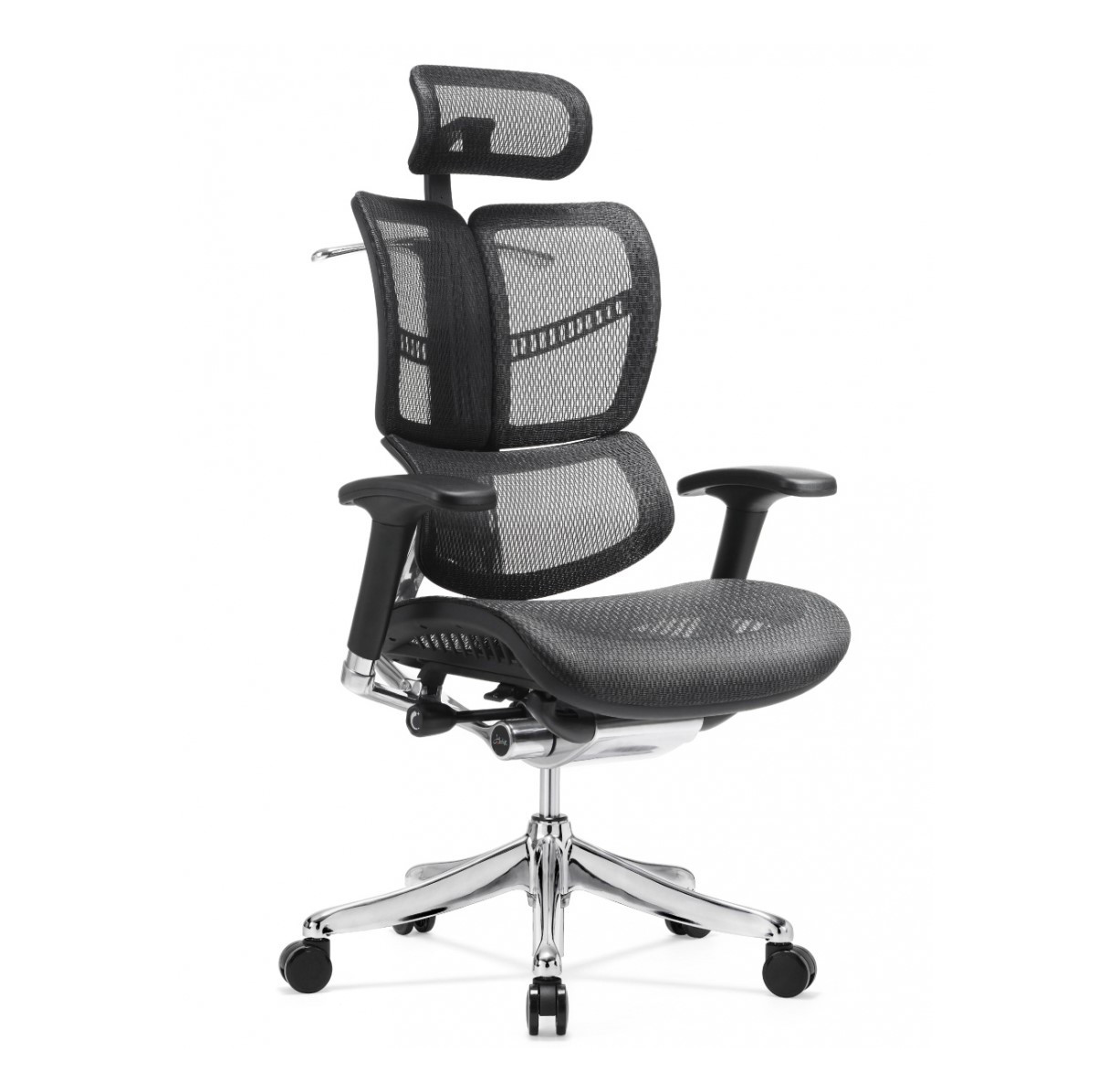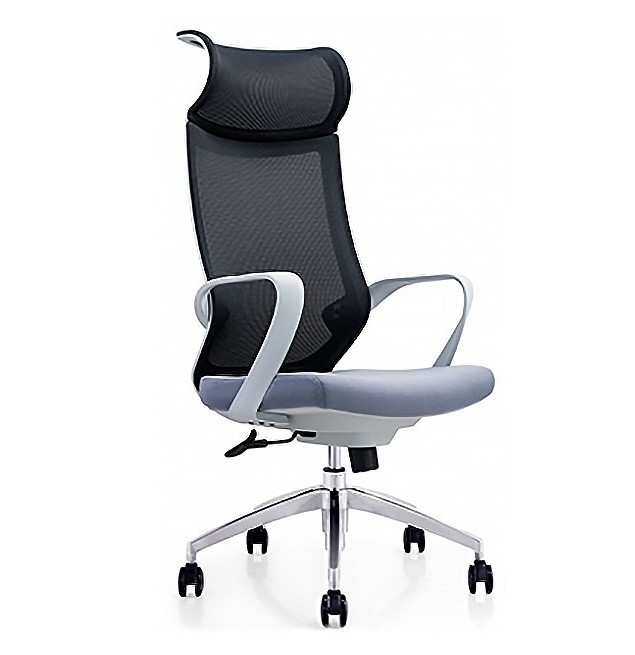
Office Chairs That Improve Circulation During Long Work Hours
Introduction
Sitting for long hours at work can have serious health effects, particularly on circulation. Poor circulation can lead to discomfort, fatigue, and even long-term health problems like varicose veins or deep vein thrombosis. That’s why it’s essential to choose an office chair that promotes good circulation. In this article, we’ll guide you through the best office chairs that help improve circulation during long hours at your desk, ensuring you stay comfortable and productive.
1. Ergonomic Design for Enhanced Comfort
An ergonomic chair is designed to support the natural curvature of your spine, reducing strain on your body and improving posture. The better your posture, the less pressure there is on your lower back and legs, which in turn enhances circulation. Look for chairs that provide lumbar support, adjustability, and cushioning for ultimate comfort.
Recommended Products:
2. Seat Height Adjustments
Having the proper seat height is crucial for promoting good circulation. If your chair is too high or low, it can compress your legs and restrict blood flow. Adjustable seat height allows you to position your chair in a way that keeps your knees at a 90-degree angle, improving blood circulation in the lower body.
3. Lumbar Support to Prevent Pressure
When sitting for extended periods, poor lumbar support can cause you to slouch or lean forward, constricting blood flow in your legs. Office chairs with built-in lumbar support can help maintain the natural curve of your spine and prevent lower back strain, allowing for better circulation.
4. Chair Tilt and Recline Features
A chair with a tilt feature enables you to change the angle of your seating position. Slightly reclining or tilting the chair back can encourage better circulation by shifting your weight and relieving pressure from your legs. Look for a chair with a tension-adjustable recline to allow for smooth adjustments.
5. Adjustable Armrests for Better Posture
When your arms are placed correctly, it minimizes the strain on your shoulders and neck, which helps improve circulation. Adjustable armrests allow you to find the best position for your arms, reducing upper body fatigue and promoting a better posture that benefits overall circulation.
6. Seat Cushioning for Comfort and Blood Flow
Incorporating good cushioning in the seat ensures that your body weight is evenly distributed, reducing the pressure on your legs. Chair cushions designed with memory foam or gel can enhance comfort and support, preventing numbness and promoting healthy circulation during long sitting sessions.
7. Breathable Mesh for Airflow and Comfort
Breathable mesh material allows for better airflow, which prevents discomfort caused by sweating and heat buildup. This can improve overall comfort and reduce the likelihood of circulation problems due to trapped heat or moisture.
8. Footrest for Leg Support
If your feet don’t reach the floor properly, using a footrest can promote better circulation by keeping your feet supported. A footrest reduces pressure on your legs and encourages you to sit in a more natural, upright position, improving overall circulation.
9. Casters for Mobility
Chairs with smooth-rolling casters make it easy to move around your desk without putting strain on your body. Regularly moving around helps reduce the risks of prolonged pressure on your body, encouraging blood circulation by keeping you active.
10. Regular Movement and Stretching
While an ergonomic chair can support healthy circulation, it's also important to incorporate movement into your work routine. Stand up, stretch, and walk around for a few minutes every hour to prevent stiffness and improve circulation. A good chair should encourage you to make these adjustments without disrupting your work flow.
Additional Considerations When Choosing Office Chairs for Circulation
-
Adjustable Features:
The more adjustable the chair, the better it can be tailored to your unique needs for optimal circulation.
-
Posture Alignment:
Proper posture is essential for supporting circulation, so choose a chair that encourages correct spinal alignment.
-
Comfortable Padding:
Look for padding that doesn’t compress easily and provides long-term comfort without hindering circulation.
-
Recline for Relief:
A reclining feature offers relief by allowing you to change sitting positions, promoting blood flow.
-
Foot Positioning:
Ensure your feet are flat on the ground to avoid restricting circulation to your legs.
-
Breathability:
Mesh chairs, like the Zonko Butterfly Super Ergonomic Executive Mesh Chair, allow your body to breathe while keeping you cool, which contributes to long-term comfort and circulation.
-
Armrest Positioning:
Properly adjusted armrests help reduce shoulder strain, indirectly benefiting circulation.
-
Tilt and Tension Adjustment:
Adjustable tilt settings allow you to shift your position throughout the day, helping to avoid the negative effects of prolonged sitting.
-
Chair Size and Fit:
A well-fitted chair reduces pressure points and ensures that you don’t feel restricted, which supports better circulation.
-
Personal Preferences:
Every body is different, so choose a chair that works for your individual needs and comfort.
Conclusion
Choosing the right office chair is crucial for improving circulation during long work hours. Features like adjustable height, lumbar support, breathable mesh material, and proper seat cushioning can significantly reduce discomfort and promote healthy blood flow. When combined with regular movement and stretches, these chairs can make a positive difference in your overall health and productivity.
FAQ
-
Can an office chair really improve circulation?
Yes, an ergonomic office chair designed with adjustable features and lumbar support can help reduce pressure and improve circulation. -
What features should I look for to promote circulation?
Look for a chair with adjustable seat height, lumbar support, breathable material, and a tilt feature to encourage movement and good posture. -
How often should I adjust my chair for better circulation?
You should adjust your chair based on your posture and comfort. Make small adjustments throughout the day and incorporate movement to keep your circulation healthy. -
Are mesh chairs better for circulation?
Yes, mesh chairs allow air to circulate, keeping you cool and comfortable, which helps prevent issues like swelling and discomfort. -
Can a footrest improve circulation?
Absolutely! A footrest helps ensure that your legs are properly supported, improving blood flow and preventing circulation issues.




